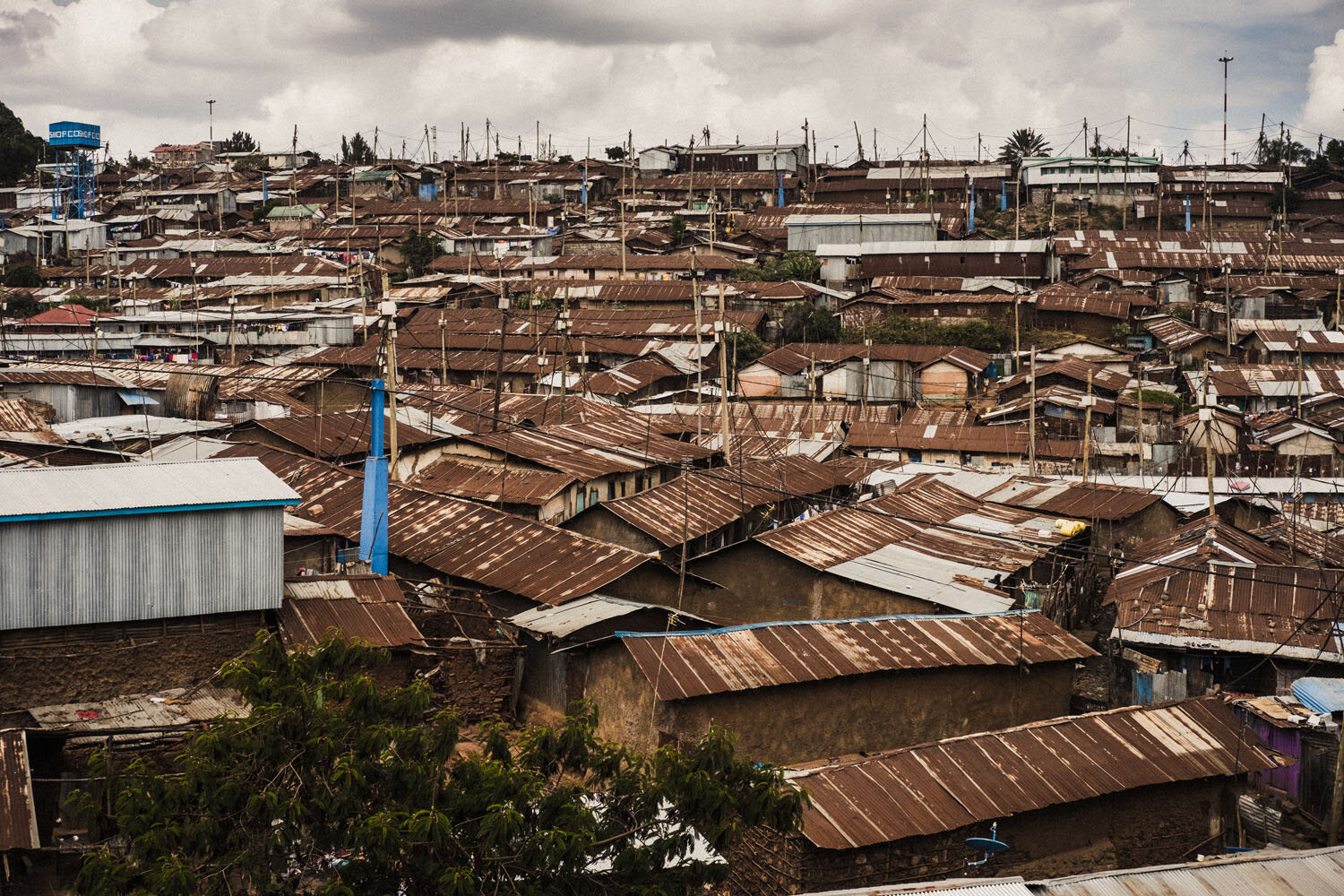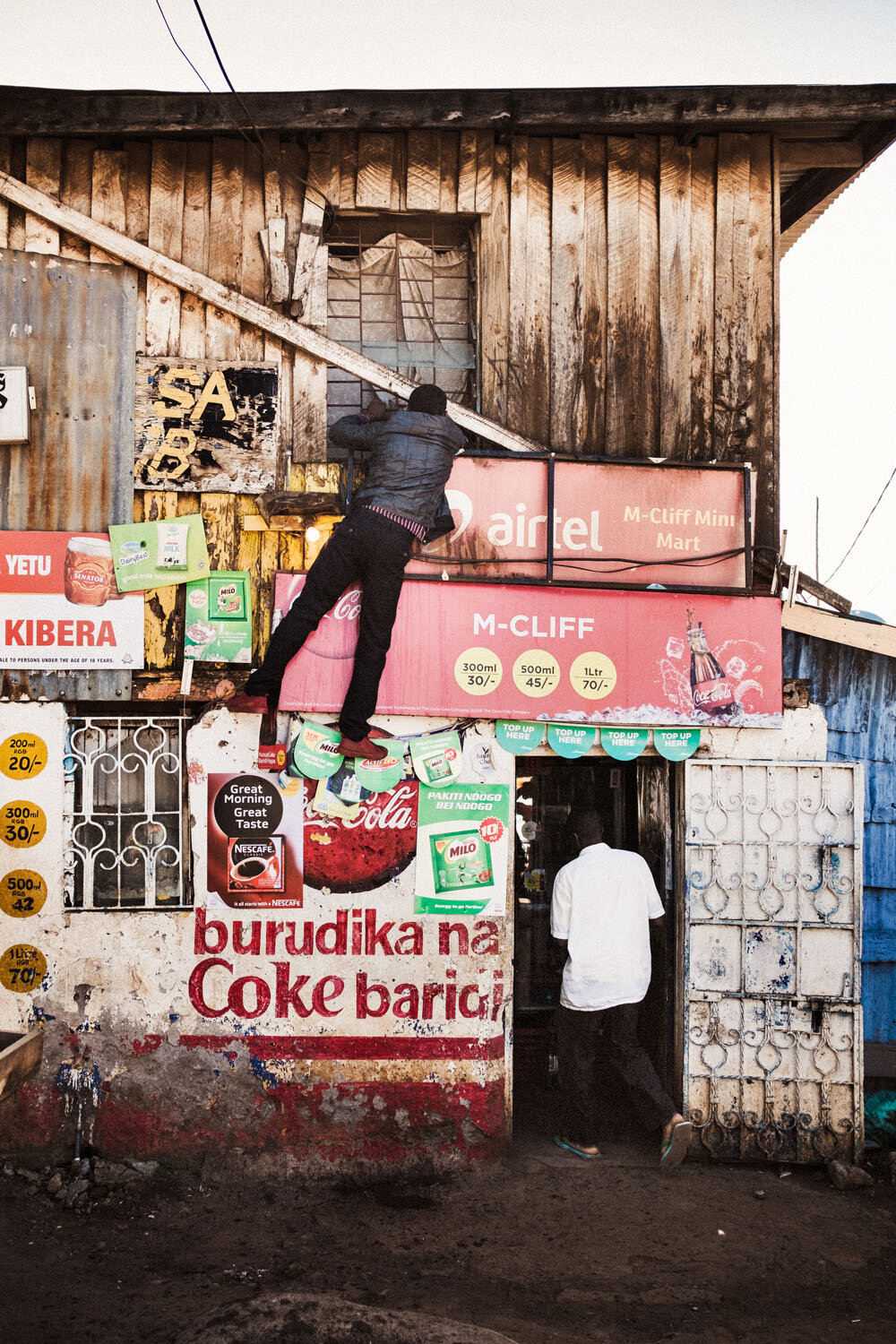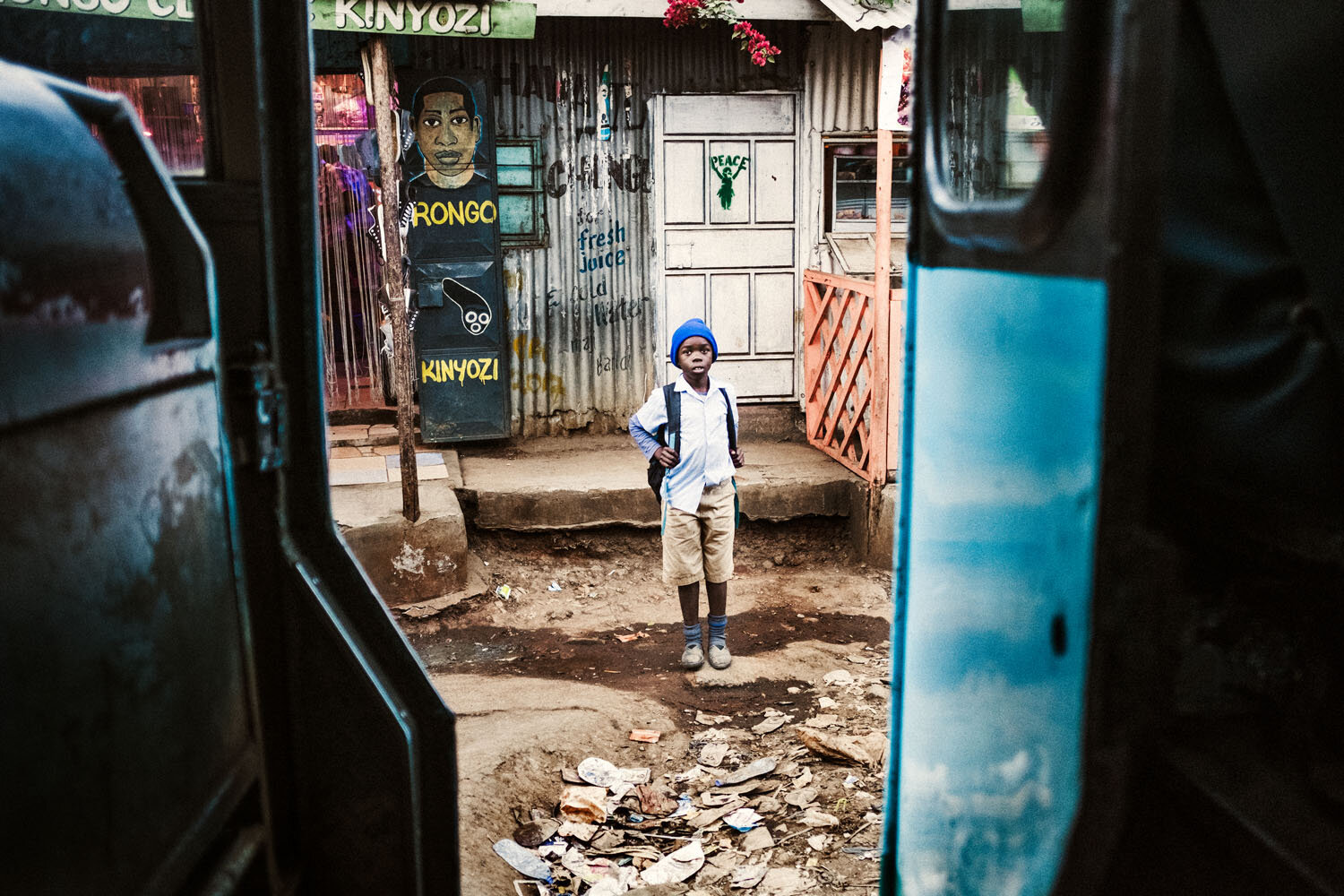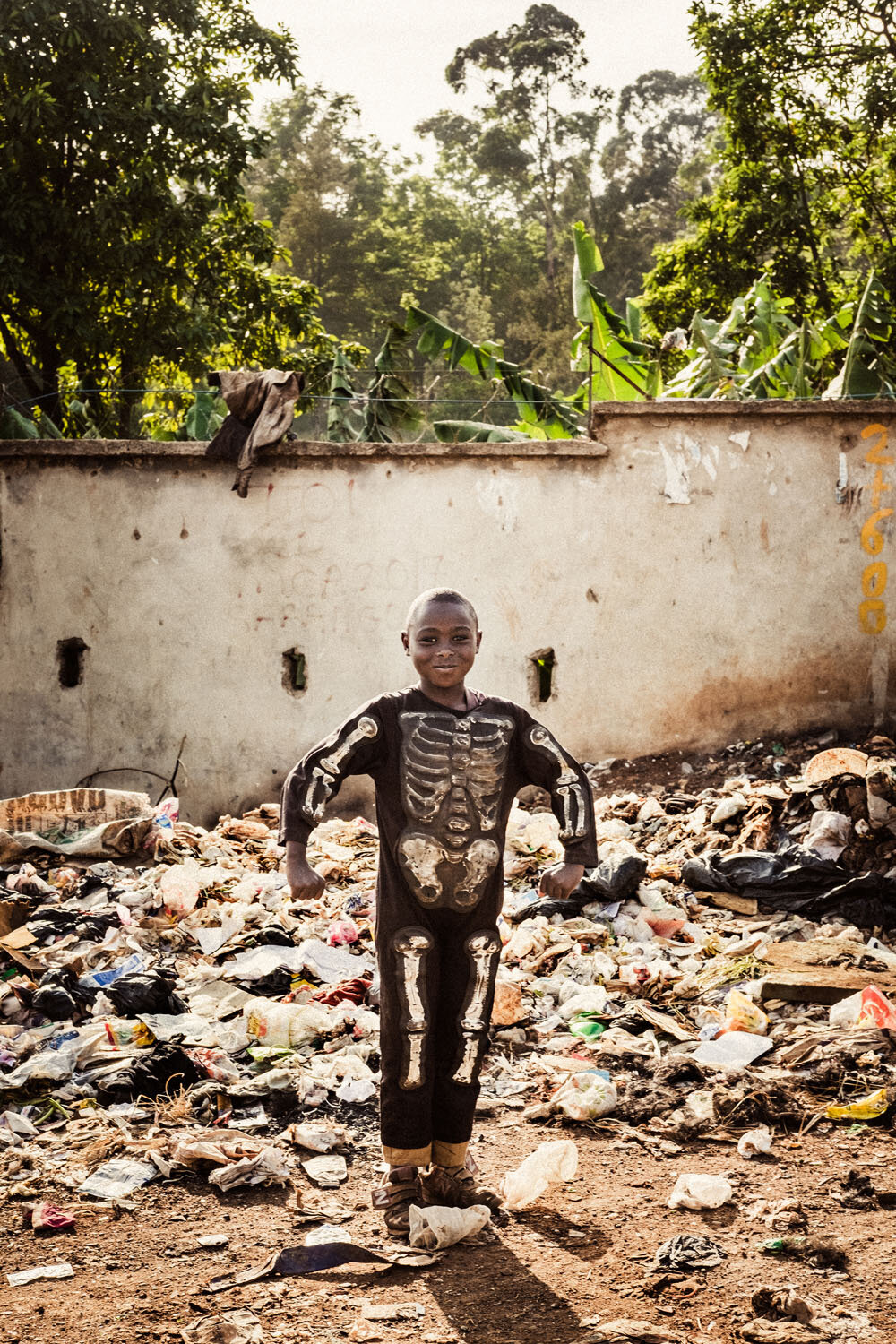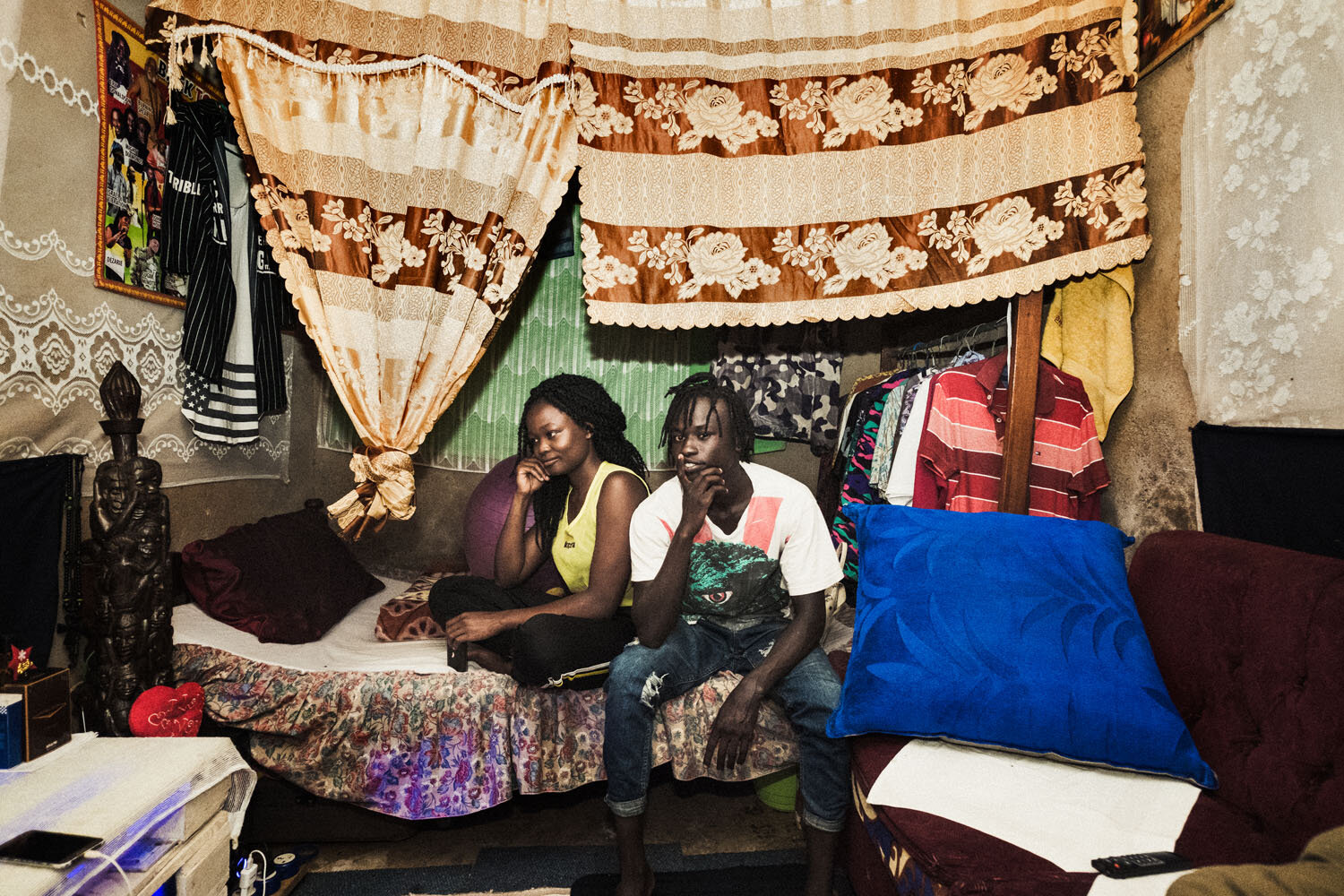
KINGS OF KIBERA
Located on the outskirts of Nairobi, Kibera is the second-largest informal settlement in Africa. In this network of shanty houses, it is thought that over a million people live in precarious conditions and extreme poverty. Violence and infectious diseases, like HIV, malaria, or tuberculosis, are everyday struggles and are the main causes of the shockingly high rate of premature deaths. The situation is made worse by the lack of hygiene and clean water that render the streets nearly unwalkable, with a constant flow of residual waters and piled-up rubbish.
The Kenyan government does not seem to care much about this marginalized part of the population, nor any of the other underprivileged areas of the country. Public entities, such as the often-corrupt police, do not venture into its labyrinths of metal and mud. However, numerous NGOs are present here, supporting health clinics, hospitals, and schools.
The vast majority of the people live on less than one dollar a day and must struggle against a reality characterized by unemployment and a rapidly growing population. The women stand out in this daily fight as they take care of the children in the face of the all-too-common absence of the husband or father. In addition to managing domestic chores and raising the children, they try to earn some money, often by selling goods on the streets. On average, each woman has between 4 and 8 children, making paying for education almost impossible. As a result, most youngsters end up wandering the streets with little hope of a better future.
Given the lack of food, education, and health services, the future of those who live here is bleak. Nonetheless, amidst the difficulties of the suburbs, the people of Kibera fight on, finding ways to get by and succeeding in making a home out of their slum.

